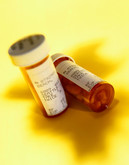Generics/General
|
Posted 20/04/2018
In March 2018, pharmaceutical companies in the US and Europe have had to defend themselves against antitrust charges. Illegal ‘pay-for-delay’ deals enable companies to profit by delaying the release of generic drug products [1]. In recent months, generics manufacturers, Impax Laboratories Inc in the US and Teva Pharmaceutical Industries (Teva) in Europe, have both been accused of entering into such deals with originator companies. In addition, US companies, Endo, Watson, Teikoku are to pay over US$270 million to settle pay-for-delay lawsuits over Endo’s Lidoderm (lidocaine) pain patch.





















